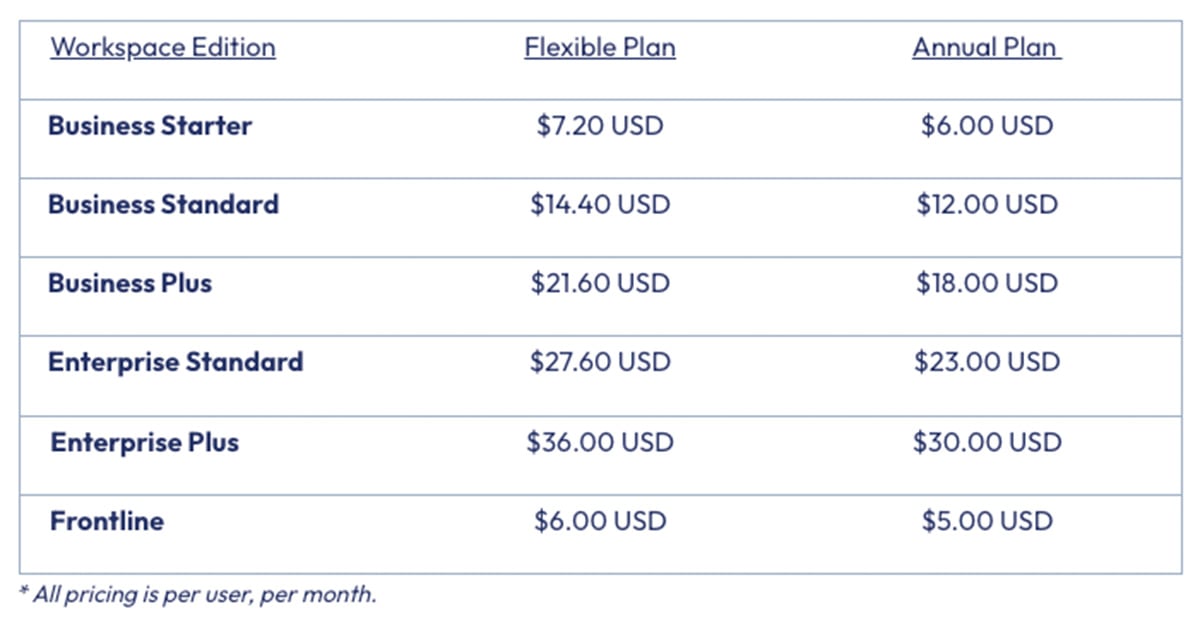5 min read
Secure Your Cloud With Google & Promevo
Securing your cloud environment is no longer just an IT concern, but a business imperative. Malware, spear phishing, session hijacking, and other...
2 min read
 Colin McCarthy
|
Feb 26, 2025
Colin McCarthy
|
Feb 26, 2025
It's 2025, yet plenty of companies still find themselves using HCL Notes (formerly known as Lotus Notes) as a key piece of tech.
It isn't that crazy of a concept — organizational change can be expensive and severely disruptive (and disruption can cost millions). Sometimes it's easier to stick with "it isn't pretty but it works" instead of the pain associated with getting to "this is beautiful and works extremely well."
We get it. Change is hard, especially when it involves foundational systems. But let's talk about why, in 2025, it might be time to finally say goodbye to HCL Notes and embrace the collaborative power of Google Workspace.
HCL Notes has a long and storied history. It wasn't just email; it was a productivity platform.
Think back to the early days of networked computing. HCL Notes was a pioneer, offering features like email, calendaring, contact management, discussion forums, and even basic application development.
For many organizations, it was the backbone of their internal communication and workflow. It was the place to collaborate. It was innovative, it was powerful for its time, and it became deeply embedded in the DNA of many businesses.
But technology doesn't stand still. The world has changed dramatically since the heyday of HCL Notes. Collaboration has evolved, expectations have shifted, and the cloud has revolutionized how we work. While HCL Notes served its purpose admirably, clinging to it in today's environment can hold organizations back.
One of the biggest challenges is the shift in how teams collaborate. Modern work demands seamless, real-time interaction, something that can be difficult to achieve with legacy systems.
This is where Google Workspace shines. Think about the ways your teams work today. They're probably already using some form of cloud-based collaboration tools, even if it's just for sharing files. Google Workspace brings all of those essential tools together in one integrated suite.
Let's break down some of the key advantages of migrating to Google Workspace:
Real-time Collaboration: Google Docs, Sheets, and Slides allow multiple users to work on the same document simultaneously, seeing changes in real-time. Say goodbye to emailing versions back and forth and trying to merge edits. This is a game-changer for teamwork.
Seamless Integration: Google Workspace apps are designed to work together seamlessly. You can easily share files from Drive within Gmail, create calendar events from Docs, and embed content from YouTube into Slides. This interconnectedness streamlines workflows and boosts productivity.
Cloud-Based Accessibility: Access your work from anywhere, on any device, with an internet connection. No more being tied to a specific machine or network. This flexibility is crucial in today's distributed work environment.
Enhanced Communication: Google Meet provides robust video conferencing capabilities, making it easy to connect with colleagues and clients around the world. Integrated chat features within Gmail and other apps facilitate quick and easy communication.
Simplified IT Management: Google Workspace is a cloud-based service, which means less burden on your IT department. No more managing servers, software updates, or complex infrastructure. This frees up IT resources to focus on other strategic initiatives.
Security: Google invests heavily in security, providing robust protection for your data. With advanced security features and compliance certifications, you can trust that your information is safe.
Moving away from a long-standing system like HCL Notes can seem daunting. But the benefits of embracing a modern, collaborative platform like Google Workspace far outweigh the challenges. HCL Software, the developers of Notes, actually migrated to Google Workspace themselves, and our team at Promevo helped Winsupply, a leading supplier of residential and industrial supplies, migrate from Notes to Google Workspace.
If you’re considering the migration to Google Workspace, now is the time to act — the tools to manage these migrations won’t be around forever. In fact, our strategic partner CloudM will be ending their support to HCL Notes soon.
In the end, it's not just about upgrading software; it's about empowering your teams to work more efficiently, effectively, and collaboratively. It's about setting your organization up for success in the modern workplace. It's about finally moving from "it isn't pretty, but it works" to "this is beautiful and works extremely well."

Meet the Author
Colin is the Director of Digital Transformation at Promevo. A Google Workspace and SaaS admin and expert, Colin first saw the power of SaaS in 2005 when he used Writely (which became Google Docs) and his own Google Apps for Business domain in 2009. Since then he’s helped companies grow and expand by embracing Google Workspace and SaaS platforms, migrating a number from Exchange to Google Workspace. Originally from the London area, Colin is now based in NYC. He appreciates sharing his knowledge and insight, evangelizing Google Workspace and SaaSOps, learning from others, and engaging the community.

5 min read
Securing your cloud environment is no longer just an IT concern, but a business imperative. Malware, spear phishing, session hijacking, and other...

8 min read
Google Workspace recently announced pricing updates with additional flexible and commitment payment options to provide customers with more options....

5 min read
In a world where the boundaries of the traditional office are increasingly blurred by remote work, the need for robust security that adapts to...